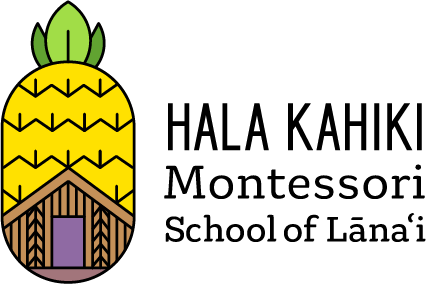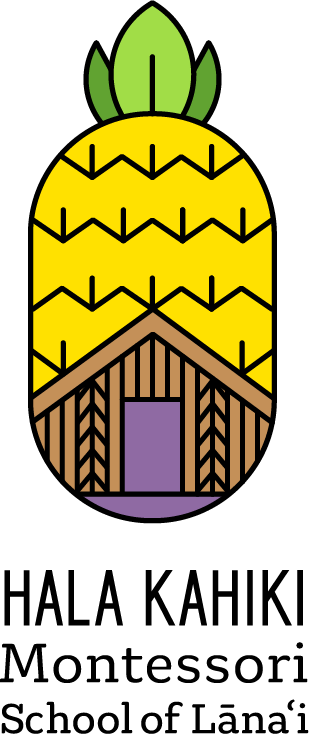Maria Montessori’s concept of the absorbent mind is one of the most powerful insights into early childhood development. She observed that from birth to around age six, children learn in a way that is entirely different from adults. Instead of absorbing information through conscious effort, young children take in everything around them naturally and effortlessly—like a sponge soaking up water. This remarkable ability allows them to acquire language, movement, culture, and even emotional patterns simply by being immersed in their environment.
Unlike adults, who learn through repetition, study, and practice, young children do not need to be “taught” in the traditional sense. They are biologically wired to absorb information from their surroundings. This is why a child under 3 years old can learn multiple languages without formal instruction, or why a child raised in a home filled with kindness and respect will naturally mirror those qualities. Dr. Montessori believed that during this period, the child is forming the foundation of who they will become—making the first six years of life the most critical in shaping intelligence, personality, and emotional well-being.
The Two Phases of the Absorbent Mind
Montessori divided this developmental period into two distinct phases:
- The Unconscious Absorbent Mind (0-3 years old): Learning happens effortlessly and without awareness.
- The Conscious Absorbent Mind (3-6 years old): The child begins to engage intentionally with the environment, refining what they have absorbed.
Understanding these phases allows us to better support children at each stage of their development.
The Unconscious Absorbent Mind (0-3 years old)
From birth to about age three, children absorb their environment passively. They do not choose what to take in—it simply happens. This is how they learn to walk, speak, and interact with the world without formal teaching. Dr. Montessori referred to this period as the spiritual embryo, emphasizing that just as a physical embryo develops unseen within the womb, the child’s personality and intellect are being shaped invisibly by their experiences.
During this time, a child is deeply sensitive to the world around them. They absorb language simply by hearing it spoken, they learn how to move by observing others, and they internalize emotional responses based on the interactions they experience. Because learning happens at an unconscious level, this stage is especially important in shaping a child’s sense of security, trust, and belonging.

How Adults Can Support the Child During This Stage
Provide a rich language environment. Speak to the child frequently, using real, rich vocabulary. Describe what you’re doing, read books aloud, and sing songs together. Avoid baby talk—children absorb the structure of language naturally when exposed to proper speech.
Allow freedom of movement. Young children need opportunities to move their bodies and explore their surroundings. Instead of confining them to playpens or walkers, offer safe, open spaces where they can crawl, climb, and practice coordination.
Maintain a predictable and peaceful environment. Routines help the child feel secure and confident. Predictability in daily life—such as consistent mealtimes, bedtime rituals, and loving interactions—provides a foundation for emotional stability.
Respond with warmth and respect. Even though infants and toddlers may not express complex thoughts, they absorb the emotional tone of their environment. Gentle, respectful interactions help them internalize a sense of safety and self-worth.
The Conscious Absorbent Mind (3-6 years old)
Around age three, a shift occurs. The child, who previously absorbed everything unconsciously, now begins to act with more intention. They start asking questions, refining skills, and seeking out specific experiences. Dr. Montessori described this as the transition from “taking in the world” to actively engaging with it. This is when children begin to practice what they have absorbed, refining language, movement, and social behaviors.
The child’s mind is still highly absorbent, but now they are more selective in their learning. They may repeat activities over and over to master a skill, show a deep curiosity about how things work, or engage in imaginative play as a way of processing their experiences.
How Adults Can Support the Child During This Stage
Offer hands-on, meaningful activities. Children at this stage love to imitate adults. Provide real-life tasks they can participate in, such as helping prepare food, watering plants, sweeping, or folding laundry. These activities build independence, coordination, and confidence.
Encourage concentration by allowing uninterrupted work. Children become deeply engaged in activities when given the freedom to focus. Avoid unnecessary interruptions when they are working on something, whether it’s building with blocks, painting, imaginary play or completing a puzzle.
Provide a thoughtfully prepared environment. A Montessori environment is designed to support independence, order, and exploration. Arrange materials on low shelves, choose toys and tools that are beautiful and functional, and create spaces where the child can work freely.
Answer questions with curiosity and respect. Children at this stage ask many “why” and “how” questions as they make sense of the world. Instead of dismissing their curiosity, engage in conversations that spark further exploration.

Our Role as Adults
The absorbent mind reminds us that children are learning all the time—whether we realize it or not. Every word spoken, every interaction, and every experience contributes to their development. As parents, caregivers, and educators, we are not just teaching children; we are shaping the very foundation of who they become.
At Hala Kahiki Montessori School of Lāna‘i, we honor this period of development by creating an environment where children feel safe, respected, and inspired to explore. Through a combination of freedom, structure, and meaningful experiences, we help young learners build confidence, independence, and a lifelong love of learning. By understanding and supporting the absorbent mind, we empower children to reach their fullest potential—naturally, joyfully, and in their own time.
"The child’s mind is not a passive receptacle to be filled, but an active force that absorbs from its environment."
Dr. Maria Montessori
To Learn More:
About Hala Kahiki
Designed for children 18 months – 6 years, Hala Kahiki is the first and only authentic Montessori school on Lāna’i. Under the guiding influence of specially trained teachers, children work with multi-sensorial materials to help them learn to think critically and become well-rounded global citizens. We would love to partner with you to give your children the best-possible early childhood education; please let us know how we can help you achieve your goals for your child.




